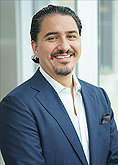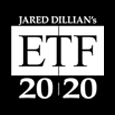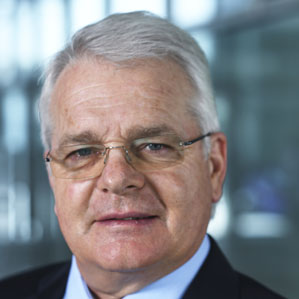| -- | April 4, 2019 An End to Class Warfare  There is a lot of talk about socialism in the United States—much of it coming from people who are pretty well-off, relatively speaking. Don’t you think that’s weird? Take a family led by two white-collar workers who make about $75,000 a year. With $150,000 in income, you still have to mind your Ps and Qs. You find ways to scrimp and save, you don’t travel that much, and maxing out your 401(k) contributions are just a fantasy, especially if you have kids. Life isn’t hard, but resources aren’t unlimited. It doesn’t seem like $150,000 goes very far. But a household income of $150,000 puts you in the top 15 percent of all households in this country. And it varies by state—a lot. If you earned $150,000 in South Carolina, it would put you in the top 8 percent, which most people would call borderline rich. But $150,000 doesn’t feel very rich. $150,000 a year feels resource-constrained, actually. There is probably a section of your town where people who earn more than $150,000 a year live. Houses are bigger, they’re on more land, and the cars in the driveway are nicer. I’ll let you in on a little secret—there is a good chance that the people in those houses feel resource-constrained, too. They are probably comparing themselves against people who have even bigger houses, and even better cars. This is totally normal economic behavior. Everyone is always sizing people up. You go to a dinner party, you walk out afterwards to the car with your spouse: “I wonder how much their house is worth?” Now we have Zillow for that. Certain aspects of this behavior are healthy. Envy isn’t always bad. It can be a motivator. I talked about Instagram in my last podcast with Tony Greer. I love Instagram—cars, suits, watches, models—it keeps me going. I can’t imagine what it would be like to feel resentful every time I logged into Instagram. Apparently, a lot of people do.
Be Like Mike If you want more money (and most people do), a bad way to go about getting it is hating people who have it. There is not a lot of introspection out there. Nobody likes to think of themselves as lazy, or lacking ambition, or incompetent. If you go up to a rich person and ask how they did it, you will probably be surprised at the amount of work that went into it. You might even question whether you are willing to make the same kinds of sacrifices. Rich Dad Poor Dad, which I read last year when I was gearing up for the personal finance stuff, is an incredible book on two fronts. First of all, the passive income scheme Kiyosaki pushes on people is amazingly bad. But the first part of the book, where he talks about people’s attitudes towards money, and the psychological differences between his rich dad and poor dad, are absolutely brilliant. Most people out there who are making high six figures and up are making a lot of sacrifices, or made sacrifices along the way. Money is a path that you can choose. Some people have different priorities. These are not terribly politically correct things to say in 2019 America. You could say them in 1999, for sure, but not 2019. One thing that gets on my nerves is that a lot of Fed critics (like myself, sometimes) like to say that quantitative easing and zero rates lifted financial asset prices, which helped a lot of rich people to get richer. This is true, perhaps, but it’s not exactly like the Fed was writing checks. People had to be positively exposed to this phenomenon—they had to take the risk, and there was no guarantee that it would turn out. Plenty of rich people did not get any richer in the last decade because they were shy about taking risk (they were probably penalized for being too smart). You might be interested to know that at the Strategic Investment Conference in May, there will be lots of investment pros who know how to take calculated, smart risks. They’re the kind of people you want to hear from when considering your investment strategies. I’m excited about it. The bad news is that the SIC is sold out, and has been for a while. The good news is that you can still do the next best thing—watch it in real time from your couch with a Virtual Pass. You can get all the details here, but I will point out that right now, you can get a Virtual Pass for about 90% less than lots of people bought their conference tickets for. Plus, no hotel costs and plane tickets to consider. All the good stuff, none of the hassle. It’s one way you can solve for x, where x is your financial success. The further we get along into this century, the further we get away from taking individual responsibility for one’s own actions. The Fed did it, the banks did it, Trump did it. How about: concentrating on yourself and ignoring all the noise. There is a much stronger correlation between your behavior and your bank account than anything anyone else does. Mind Your Own Damn Business People tell me that I am rich. I am not so sure. Like I said in the beginning of this piece, there is always someone with more. I’ve never had someone come up to me and ask me what I did to get rich. You know what—I would be happy to tell them. I think most people would. In the course of my business, I have met a lot of super-rich people. Most of them either managed money or started businesses or both. If I wanted to get super-rich like them, I know exactly what I would have to do. So far, I have been unwilling to do it. I have been unwilling to make the sacrifices or take the risk. That is a choice. Some folks lately have been complaining about the perceived lack of class mobility. Especially with this college admissions scandal—super-rich jackasses are bribing their kids into college. What kind of chance does everyone else have? You just have to work harder. Having money confers advantages—that has always been true. But America is still the same country where you can work your way up from the mail room, metaphorically speaking. I have a Horatio Alger story. I heard one better—a guy on Wall Street (someone who I actually disliked) honey badgered his way into Goldman Sachs from a non-target school and is now probably a centimillionaire after working on the buy side at a series of hedge funds. I have lots of stories like this. I am the patron saint of the non-targets. There are politicians out there who will use words like “elite,” “billionaire,” and “rigged,” sometimes all in the same sentence. Tell your story walking. If I can do it, anyone can. 
Jared Dillian
Editor, The 10th Man
  ETF 20/20: Your solution for intelligent ETF investing. Jared’s introductory service, helps investors use ETFs to make more money in the markets with less volatility. ETF 20/20 is a newsletter for every investor—order your subscription now | | Other publications by Jared Dillian: Street Freak: Jared’s monthly newsletter for self-directed stock pickers. Learn how to pick and trade trends, and master your inner instincts here. The Daily Dirtnap: Want to read Jared every day of the week? Hear his daily thoughts on the markets, investor sentiment, central banks, and a dose of dark wit. Thousands of sophisticated investors, Wall Street traders, and market participants read Jared’s premier service, The Daily Dirtnap. Get it here. |
Share Your Thoughts on This Article
  Was this email forwarded to you?
Click here to get your own free subscription to The 10th Man. Use of this content, the Mauldin Economics website, and related sites and applications is provided under the Mauldin Economics Terms & Conditions of Use. Unauthorized Disclosure Prohibited The information provided in this publication is private, privileged, and confidential information, licensed for your sole individual use as a subscriber. Mauldin Economics reserves all rights to the content of this publication and related materials. Forwarding, copying, disseminating, or distributing this report in whole or in part, including substantial quotation of any portion the publication or any release of specific investment recommendations, is strictly prohibited.
Participation in such activity is grounds for immediate termination of all subscriptions of registered subscribers deemed to be involved at Mauldin Economics’ sole discretion, may violate the copyright laws of the United States, and may subject the violator to legal prosecution. Mauldin Economics reserves the right to monitor the use of this publication without disclosure by any electronic means it deems necessary and may change those means without notice at any time. If you have received this publication and are not the intended subscriber, please contact service@mauldineconomics.com. Disclaimers The Mauldin Economics website, Thoughts from the Frontline, The Weekly Profit, The 10th Man, Connecting the Dots, Transformational Technology Digest, Over My Shoulder, Yield Shark, Transformational Technology Alert, Rational Bear, Street Freak, ETF 20/20, In the Money, and Mauldin Economics VIP are published by Mauldin Economics, LLC Information contained in such publications is obtained from sources believed to be reliable, but its accuracy cannot be guaranteed. The information contained in such publications is not intended to constitute individual investment advice and is not designed to meet your personal financial situation. The opinions expressed in such publications are those of the publisher and are subject to change without notice. The information in such publications may become outdated and there is no obligation to update any such information. You are advised to discuss with your financial advisers your investment options and whether any investment is suitable for your specific needs prior to making any investments.
John Mauldin, Mauldin Economics, LLC and other entities in which he has an interest, employees, officers, family, and associates may from time to time have positions in the securities or commodities covered in these publications or web site. Corporate policies are in effect that attempt to avoid potential conflicts of interest and resolve conflicts of interest that do arise in a timely fashion.
Mauldin Economics, LLC reserves the right to cancel any subscription at any time, and if it does so it will promptly refund to the subscriber the amount of the subscription payment previously received relating to the remaining subscription period. Cancellation of a subscription may result from any unauthorized use or reproduction or rebroadcast of any Mauldin Economics publication or website, any infringement or misappropriation of Mauldin Economics, LLC’s proprietary rights, or any other reason determined in the sole discretion of Mauldin Economics, LLC. Affiliate Notice Mauldin Economics has affiliate agreements in place that may include fee sharing. If you have a website or newsletter and would like to be considered for inclusion in the Mauldin Economics affiliate program, please go to http://affiliates.ggcpublishing.com/. Likewise, from time to time Mauldin Economics may engage in affiliate programs offered by other companies, though corporate policy firmly dictates that such agreements will have no influence on any product or service recommendations, nor alter the pricing that would otherwise be available in absence of such an agreement. As always, it is important that you do your own due diligence before transacting any business with any firm, for any product or service. | -- |





